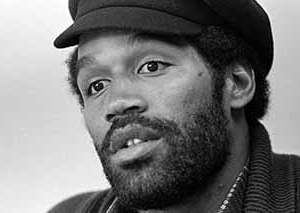
With Wednesday, April 4th being the 50th Anniversary of the assignation of Dr. Martin Luther King, Jr., director and playwright Tyler Perry reflects on the Civil Right’s Leader’s legacy and his brush with racial discrimination in the Deep South.
In a beautiful essay written by Tyler Perry for AARP The Magazine, he writes: “Because of Dr. King’s dream, and the countless people who fought against inequality and for the end of segregation, I am now a successful businessman. I am able to live where I want and have my son educated wherever he chooses. We can’t be denied because of the color of our skin.”
Tyler was so moved by Dr. King’s devotion to non-violent social change, that he moved to Atlanta, the birthplace of the great Civil Rights advocate.
“I was growing up in a home full of emotional and physical brutality, it fascinated me to think that someone could actually change the world without using violence.”

After moving to Atlanta from Louisiana while still in his early 20s, Tyler familiarized himself with the affluent neighborhood off Paces Ferry Road, also known as “the Beverly Hills of Atlanta”.
Tyler often drove up and down Paces Ferry, dreaming about one day owning one of the regal mansions in the leafy suburb.
Over a decade later, Tyler realized his dream of owning property on Paces Ferry Road. But that dream was nearly derailed by a crusty old lawyer who refused to let go of Atlanta’s segregationist past.
Tyler writes:
“Several months later, after the purchase was in progress, an Atlanta sheriff served a summons against me, brought by Moreton Rolleston Jr., an infamous Atlanta attorney. Rolleston not only previously owned a downtown motel ironically called Heart of Atlanta, but also at one time owned the Paces Ferry land where I was planning to build my dream home. Even though Rolleston had lost the property in a malpractice suit, he claimed otherwise. When I showed up in court, Rolleston took a long look at me. I watched as the blood drained from his face. At first I didn’t understand his shocked reaction, though I would soon learn that he owned several properties in the area and all the deeds contained a provision stating they couldn’t be sold to African Americans or Jews.
When I heard this, I was taken aback. Rolleston believed so defiantly in his right to discriminate against African Americans that, years earlier, he had argued the merits of segregation all the way to the Supreme Court.
The judge in my case decided in my favor. There was a sort of poetic justice in his ruling.
Here I was, purchasing a property that was once owned by a staunch segregationist. My mother was so proud when I told her this. One evening I was sharing this story with guests at my Atlanta home (built on the very same Paces Ferry property). One of my guests was the civil rights leader and congressman John Lewis. With an emotional voice, Lewis told me, “I knew that man.
I was one of the people who sat in at the lunch counter of his hotel” back in the early 1960s. Had it not been for Dr. King’s dream and vision, the land I call home, where I have entertained guests including President Obama and Dr. King’s children, is somewhere I would never have been allowed to live—though I would have been allowed to work there, probably as a servant. I may not remember every moment in my life, but I do remember the moments that changed my life—and that evening was one of them.
Photo by WENN.com





